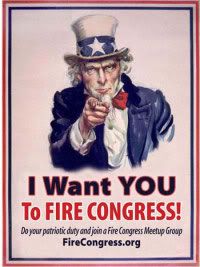Results 1 to 2 of 2
Thread Information
Users Browsing this Thread
There are currently 1 users browsing this thread. (0 members and 1 guests)
-
02-12-2010, 01:17 AM #1
The Crusades: When Christendom Pushed Back
The Crusades: When Christendom Pushed Back | Print | E-mail
Written by Selwyn Duke
Friday, 05 February 2010 00:00
The year is 732 A.D., and Europe is under assault. Islam, born a mere 110 years earlier, is already in its adolescence, and the Muslim Moors are on the march.
Growing in leaps and bounds, the Caliphate, as the Islamic realm is known, has thus far subdued much of Christendom, conquering the old Christian lands of the Mideast and North Africa in short order. Syria and Iraq fell in 636; Palestine in 638; and Egypt, which was not even an Arab land, fell in 642. North Africa, also not Arab, was under Muslim control by 709. Then came the year 711 and the Moorsâ invasion of Europe, as they crossed the Strait of Gibraltar and entered Visigothic Iberia (now Spain and Portugal). And the new continent brought new successes to Islam. Conquering the Iberian Peninsula by 718, the Muslims crossed the Pyrenees Mountains into Gaul (now France) and worked their way northward. And now, in 732, they are approaching Tours, a mere 126 miles from Paris.
The Moorish leader, Abdul Rahman Al Ghafiqi, is supremely confident of success. He is in the vanguard of the first Muslim crusade, and his civilization has enjoyed rapidity and scope of conquest heretofore unseen in world history. He is at the head of an enormous army, replete with heavy cavalry, and views the Europeans as mere barbarians. In contrast, the barbarians facing him are all on foot, a tremendous disadvantage. The only thing the Frankish and Burgundian European forces have going for them is their leader, Charles of Herstal, grandfather of Charlemagne. He is a brilliant military tactician who, after losing his very first battle, is enjoying an unbroken 16-year streak of victories.
And this record will remain unblemished. Outnumbered by perhaps as much as 2 to 1 on a battlefield between the cities of Tours and Poitier, Charles routs the Moorish forces, stopping the Muslim advance into Europe cold. It becomes known as the Battle of Tours (or Poitier), and many historians consider it one of the great turning points in world history. By their lights, Charles is a man who saved Western Civilization, a hero who well deserves the moniker the battle earned him: Martellus. We thus now know him as Charles Martel, which translates into Charles the Hammer.
The Gathering Threat in the East
While the Hammer saved Gaul, the Muslims would not stop hammering Christendom â and it would be the better part of four centuries before Europe would again hammer back. This brings us to the late 11th century and perhaps the best-known events of medieval history: the Crusades.
Ah, the Crusades. Along with the Galileo affair and the Spanish Inquisition (both partially to largely misunderstood), they have become a metaphor for Christian âintolerance.â

-
02-12-2010, 01:24 AM #2Senior Member

- Join Date
- Apr 2006
- Posts
- 7,928
See also
The Reislamification of Europe - from the Dark Ages to 2010
http://www.alipac.us/ftopict-184943-charlemagne.htmlJoin our efforts to Secure America's Borders and End Illegal Immigration by Joining ALIPAC's E-Mail Alerts network (CLICK HERE)


 LinkBack URL
LinkBack URL About LinkBacks
About LinkBacks




 Reply With Quote
Reply With Quote

Number of American teens being arrested for HUMAN SMUGGLING on...
04-19-2024, 10:20 PM in General Discussion